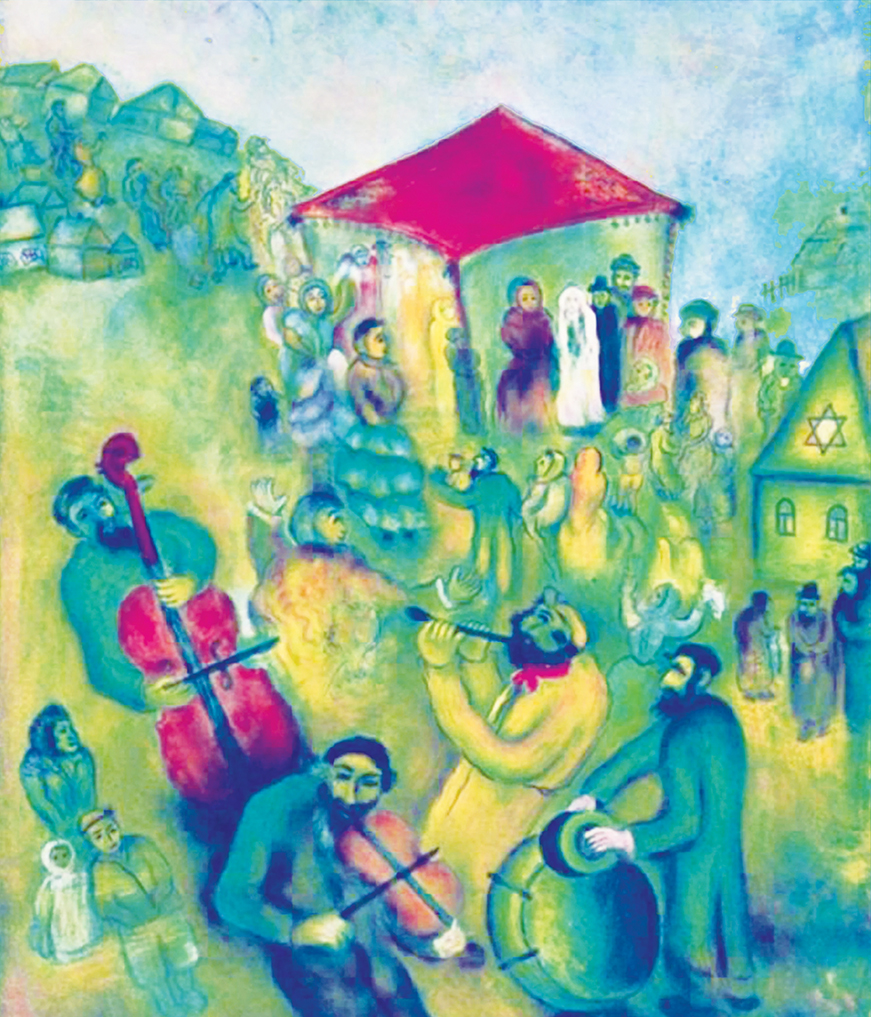L’chaim, To life!

The Power of Stories Series
Jewish Family Education with Candace R. Kwiatek, The Dayton Jewish Observer
At the 2012 Diamond Jubilee celebration of Queen Elizabeth II, one ceremonial address was given by a representative of the Jewish community, Vivian Wineman.
He included the traditional Jewish blessing, wishing her majesty well “until 120.” Amused, the queen looked quizzically at Prince Philip, observed Rabbi Lord Jonathan Sacks, neither having ever heard that expression.
While the number first appears in Genesis as the limit of a human lifetime, the queen later learned, its status as a blessing originates with Moses about whom the Torah remarks, “Moses was 120 years old when he died, yet his eyes were undimmed and his strength undiminished.”
“L’chaim! It’s the quintessential Jewish greeting, Jewish toast, Jewish hope, Jewish saying,” writes Rabbi Amy Perlin. And it embodies the two essential qualities of Moses with which Jews bless others: optimistically looking to the future and fully engaging in the world of the moment.
Perhaps l’chaim is also why every year we reread the Akedah, the Binding of Isaac. By ritualizing death, we are spurred to embrace life, suggests Rabbi Joel Sisenwine.
After all, who has ever had a brush with death and not returned to life with renewed vigor and sense of purpose? In this spirit, Victor Frankl advises, “So live as if you were living already for the second time.”
Modern psychology has uncovered some interesting parallels with the Jewish perspective. Research shows that looking to the future creates an emotional target, a destination that gives us purpose, notes Wharton psychologist Adam Grant.
Research also reveals the psychological benefits of being in the moment: greater happiness and excitement about life as well as feelings of security and a sense of self.
As Medium’s Kylie Fuller writes, “Presence anchors us to the now.”

Thousands of years ago, Judaism developed around those same themes. The notions of repairing the world (tikun olam), divine judgment, and a future Messianic Age are the explicit objectives of looking to the future.
Presence evokes family and community, meaningful endeavors, and opportunities to make a difference, all elements of life addressed by the biblical commandments and engagement in Jewish living.
Early in the book of Numbers, the 12 wealthy tribal princes of Israel squeeze all of their tribes’ donations to the Tabernacle into just six wagons. It would have been easier with 12, but there’s a message here. Life isn’t about ease; it’s about purpose.
Young or old, each of us must live life to the fullest by giving of ourselves, sharing our unique talents, making every moment count in order to justify the gift that is life. That’s the message of these stories.
Thursdays with Chaim. For decades, as his kids were born and his job grew, Yaakov would busily nod to his neighbor Chaim, calling out “Good morning!” One day, Yaakov decided to ask Chaim to be his study partner. “Of course! That’s a wonderful idea,” Chaim said. “When shall we start?”
And so it began. Every Thursday, Chaim arrived promptly on Yaakov’s doorstep, and as they studied together, a strong friendship developed. Thursday became their favorite day of the week.
Then Yaakov heard Chaim was in the hospital. The next day, he headed over. “Chaim, what on earth are you doing here?” “Me? What are you doing here?” “Chaim…it’s Thursday.” And they picked up where they’d left off. The next evening Chaim passed away.
As Yaakov returned home after the funeral, he looked over at Chaim’s house, images of their times together making him smile. But there could have been so many more.
Red ribbon-blue ribbon. When Daniel visited his mother, they naturally gravitated to the care facility’s large, well-lit social hall. Surrounded by silent, unsmiling, fading people with thousand-yard stares, Daniel wondered how he could make a difference.
“Ahem… Ladies… I am desperate for advice,” Daniel called out one day—in Yiddish. “It has to do with keeping an evil eye away from a child.”
Heads popped up and turned toward him, eyes alight. “My mother suggests it’s necessary to pin a colored ribbon on the child’s undergarment. But she doesn’t remember the color, so I have selected a blue one. Is this correct?”
One ancient woman approached, squinting and pursing her lips. “Vos has du gezukt? A blaue bandl fur an ahora? S’iz ganz meshiga. Nur a rote bandl!” she said disdainfully, loosely translated as “Moron! Are you for real? What kind of an idiot would use a blue ribbon against the evil eye? That’s ridiculous! It’s absolutely mandatory to use red ribbons.”
The room of 23 women all began to talk at once, animatedly arguing ribbon colors and then moving on to more efficient evil-eye techniques — all from asking for a bit of advice. After that, every time he walked into the social hall, they all waited expectantly for Daniel to ask them for their help. And he never disappointed them.
Epilogue. Routine tests unexpectedly revealed a spot on Melvin’s lung. Possibly cancer. Scheduled for a more definitive test in a few weeks, Melvin began to plan.
First, he quit his job, and then began traveling to places he’d always wanted to visit, especially Israel.
He scheduled frequent trips to visit the children and grandchildren, set up lunch dates with friends, and set to writing an ethical will as his legacy.
When the results came back showing the spot was benign scar tissue, Melvin was elated. And yet, having made plans for a last year filled with passion and joy and creativity, he was just a bit disappointed.
And an unsettling question continued to haunt him: What’s stopping me from doing all those things I was going to do if I was going to die? Why do I have to wait? L’chaim!
Literature to share
An Affair of Spies by Ronald Balson. The son of a prominent German scientist, Nathan Silverman is sent to America in the aftermath of Kristallnacht. Hoping for a chance to fight the Nazis, he enlists in the military and is quickly selected for a special project. Together with a brilliant French-speaking scientist, he is to smuggle a German physicist out of Europe to give America an edge in the race to develop a nuclear weapon. A tale of love, heroism, and action-packed espionage, this historical thriller will keep you on the edge of your seat.
A Snake, A Flood, A Hidden Baby: Bible Stories for Children by Meir Shalev. From the whimsical illustrations to the inviting and humorous narrative, this retelling of six popular tales from the Bible is sure to appeal to children and adults alike. Values of gratitude, honesty, hospitality, kindness and more come to life, as do the consequences of choices both good and bad. An absolute winner, and highly recommended especially for the primary ages.
To read the complete December 2022 Dayton Jewish Observer, click here.


